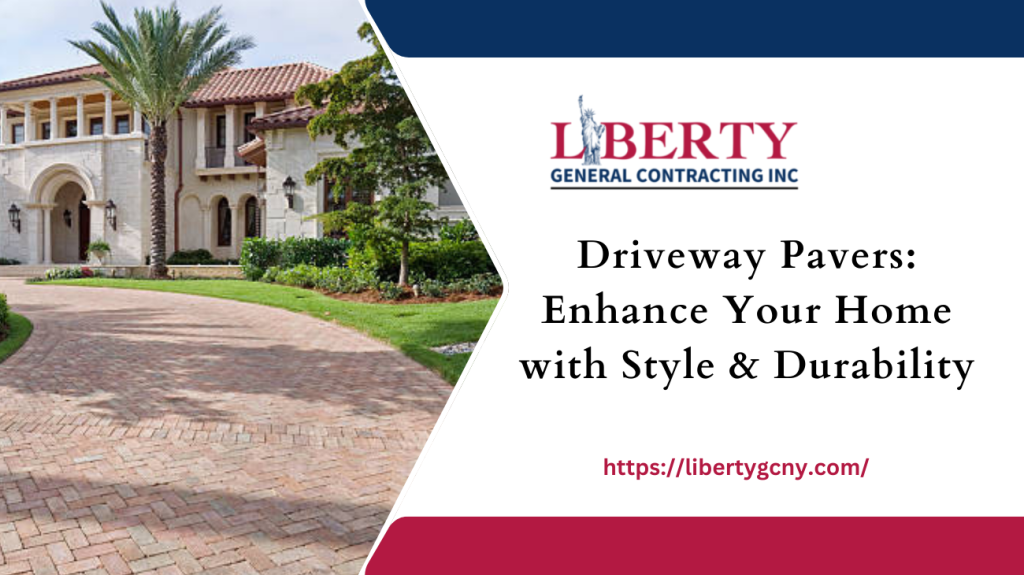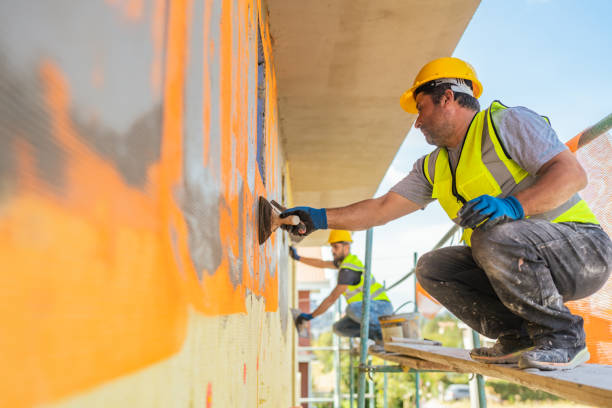When upgrading your home’s curb appeal, the driveway sets the tone. Investing in pavers for driveway installations not only improves aesthetics but also adds long-term strength and value. From the timeless charm of brick to the affordability of concrete driveway pavers, the right material can completely transform your home’s entrance.
Table of Contents
This guide explores everything you need to know about driveway pavers—including types, installation, costs, and why professional installation matters.
Why Choose Driveway Pavers Over Traditional Options?
Homeowners often compare driveway pavers with asphalt or poured concrete. Here’s why pavers consistently come out on top:
- Durability – Built to withstand heavy loads without cracking.
- Design Variety – Available in endless shapes, colors, and textures.
- Easy Maintenance – Replace single pavers instead of resurfacing the entire driveway.
- Weather Resistance – Performs well in hot summers and freezing winters.
- Longevity – A properly installed paver driveway can last 30–50 years.
Popular Types of Pavers for Driveways
Choosing the right pavers for driveway projects depends on budget, style, and maintenance needs.

1. Concrete Driveway Pavers
Affordable and versatile, concrete pavers for driveway installations are the go-to choice for many homeowners. They can mimic stone or brick while remaining budget-friendly.
2. Brick Pavers
Perfect for a classic, timeless look. Brick pavers are strong, eco-friendly, and slip-resistant.
3. Natural Stone Pavers
For a luxurious entrance, natural stone (granite, travertine, or bluestone) offers unmatched beauty. They’re more costly but elevate property value.
4. Permeable Pavers
Designed for sustainability, permeable pavers allow water drainage and reduce runoff—ideal for eco-conscious homeowners.
How Driveway Pavers Are Installed
Professional installation is key to ensuring your driveway pavers remain stable and beautiful. The process includes:
- Planning & Design – Select paver type, pattern, and layout.
- Excavation – Remove old material and prepare the site.
- Base Layer – Add and compact gravel for strength.
- Sand Bedding – Spread sand to create a smooth base.
- Paver Placement – Lay concrete driveway pavers or chosen material in the desired pattern.
- Sealing & Compaction – Lock pavers in place and protect against stains.
Cost of Driveway Pavers
Your investment depends on material and design complexity. Here’s a cost breakdown:
| Material Type | Average Installed Cost (per sq. ft.) |
|---|---|
| Concrete Driveway Pavers | $10 – $20 |
| Brick Pavers | $12 – $25 |
| Natural Stone Pavers | $20 – $40 |
| Permeable Pavers | $15 – $30 |
💡 Tip: While concrete driveway pavers are budget-friendly, natural stone creates a premium look that increases resale value.
Maintenance Tips
Keep your driveway pavers looking new with simple care:
- Sweep debris regularly.
- Use mild detergent or pressure wash for stains.
- Re-seal every 2–3 years for added protection.
- Replace individual damaged pavers when needed.
DIY vs. Professional Installation
While DIY may seem appealing, installing pavers for driveway requires precision. Without proper grading, drainage, and compaction, pavers may shift or sink over time. Professional contractors ensure long-lasting results and a polished finish that boosts curb appeal.
FAQs About Driveway Paving
Are concrete pavers better than poured concrete?
Yes, concrete paving stones are stronger, more flexible, and easier to maintain than poured slabs.
How long does a paved driveway last?
When installed and maintained properly, a paved driveway can last 30–50 years.
Can damaged stones be replaced individually?
Yes, one of the key advantages of paving stones is the ability to replace single units without tearing up the entire surface.
Should I seal my driveway after installation?
Sealing every 2–3 years protects against stains, fading, and weather damage.
Are stone and brick pavers more expensive than concrete?
Yes, natural stone and brick are pricier than concrete but offer unique style and higher curb appeal.
Final Thoughts
Upgrading with driveway, pavers is a smart investment for homeowners who want a durable, low-maintenance, and stylish entrance. From budget-friendly concrete driveway paver to elegant natural stone, the options are endless.
If you’re ready to transform your driveway, consult experienced professionals for design and installation. A well-installed paver driveway doesn’t just enhance curb appeal—it adds real value to your home.
Contact Liberty GCNY
Website: www.libertygcny.com
Phone: (347) 682-9840
Serving: Manhattan, Brooklyn, Queens, The Bronx, Westchester County, and Long Island.
Address:110-14 178th St, Jamaica, NY


